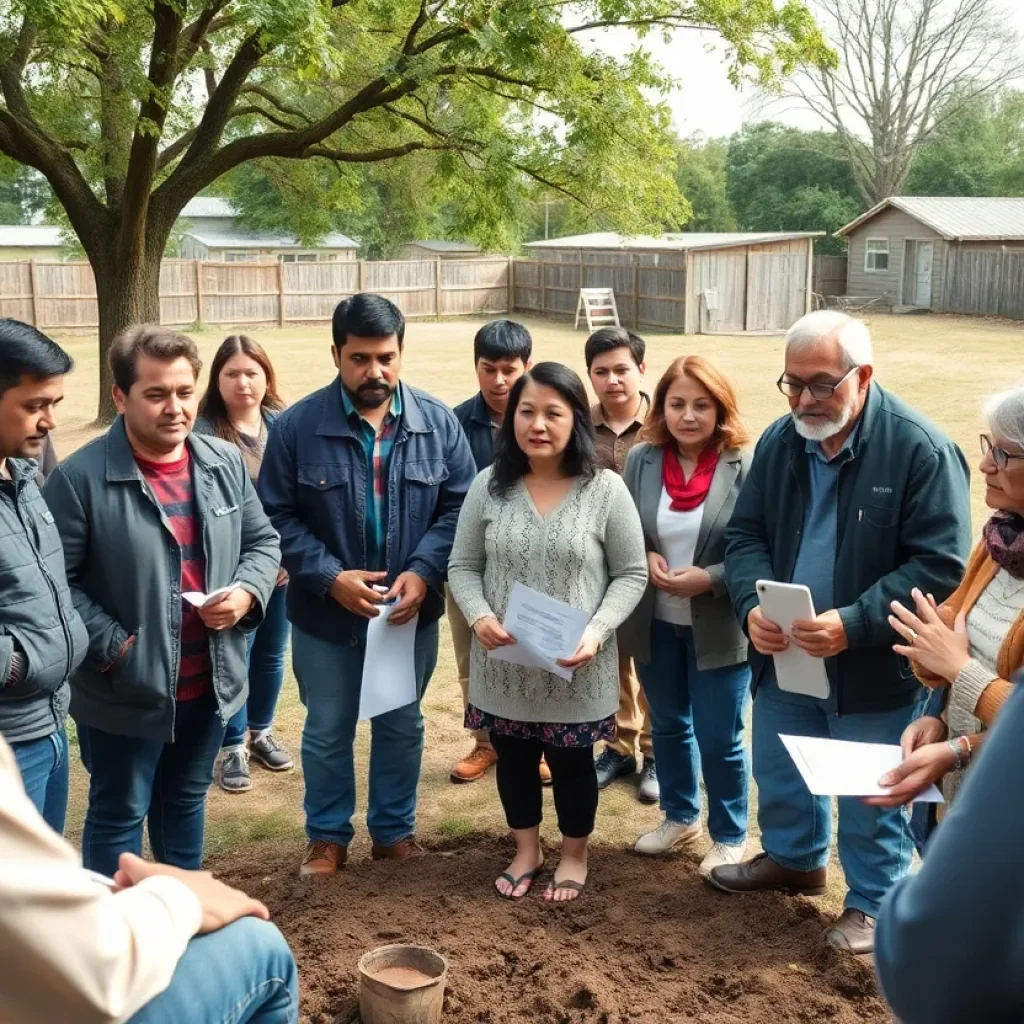

Community members gather to discuss foundry sand contamination and health risks.
Chattanooga is facing serious health risks from foundry sand contamination, which has historically been used as topsoil. Recent tests revealed dangerous lead levels in local soil, especially concerning for families with young children. TDEC is offering assistance to homeowners for soil remediation, while the EPA provides funding for cleanup efforts. The situation reflects historical practices and calls for community action to ensure a safe environment.
Chattanooga is stepping into a crucial conversation about foundry sand contamination that has been affecting local soil. On March 20, 2025, Troy Keith from the Tennessee Department of Environment and Conservation (TDEC) presented alarming details at a Chattanooga Rotary Club meeting. The topic of concern? The hazards of foundry sand, a material previously used as fill and even as topsoil in the city.
Many residents may not realize that foundry sand can look remarkably like healthy topsoil, making it difficult to identify. However, the reality is that this sand can harbor dangerous levels of lead, which poses a significant risk to health. Recent soil testing conducted by TDEC has raised red flags about lead levels throughout several neighborhoods in Chattanooga.
The primary risk comes from direct contact with the contaminated sand, promoting the need for vigilant monitoring, especially among families with young children who love to play outdoors. TDEC assures that groundwater and crops are clear of lead contamination, which is a relief to many. In fact, a thick layer of grass is recognized as a protective barrier against potential soil contamination.
If you are a landowner in the affected areas, don’t panic. TDEC has opened the lines for residents to reach out for help. Assistance is available for the removal of contaminated soil, and this can be replaced with clean, safe material. If soil tests reveal lead levels that exceed specified thresholds, homes located in impacted neighborhoods qualify for cleanup under a program designed to safeguard families.
So how did we get here? The lead contamination largely stems from historical practices at local foundries, which once provided spent sand and dust that was used as topsoil. Fast forward to the present, and with new developments brewing, like the upcoming Lookouts stadium and additional residential spaces, there’s a pressing need for cleanup in these crucial areas.
The groundwork for remediation is being paved by the Brownfield site program, boosted by generous funding from the Environmental Protection Agency (EPA). Chattanooga has received two $500,000 grants aimed at assessments and cleanup activities, in addition to a substantial $3.9 million for a Revolving Loan Fund, all dedicated to cleaning up Brownfield sites throughout the city.
Additionally, the funding avenues have expanded to include access to a whopping $3.5 billion from legislation enacted in 2021, aimed at addressing contamination issues across the nation.
Testing for contamination is entirely voluntary and focuses mainly on residential properties. The cleanup process typically consists of removing the tainted topsoil and replacing it with clean soil and a fresh layer of sod. Efforts are currently underway in various neighborhoods, including Alton Park, Cowart Place, East Lake, Highland Park, Jefferson Heights, Oak Grove, Southside Gardens, and Richmond.
Chattanooga is gearing up to tackle this challenge head-on, it’s a community effort to create a safe and thriving environment for everyone. If you’re in an affected area, stay informed and don’t hesitate to reach out to TDEC for guidance.
News Summary Andre Grier, a gang member from Chattanooga, is charged with first-degree murder for…
News Summary The Hamilton County Clerk's Office has announced the issuance of new marriage licenses…
News Summary Health inspection scores for local restaurants in Chattanooga, spanning Hamilton, Catoosa, and Walker…
News Summary A local journalist has expressed gratitude to Chattanooga residents after 3.5 years of…
News Summary Chattanooga Mayor Tim Kelly has appointed Stephanie Cepak as the new press secretary.…
News Summary A shooting incident occurred early Sunday morning on I-24 Eastbound in Chattanooga, resulting…